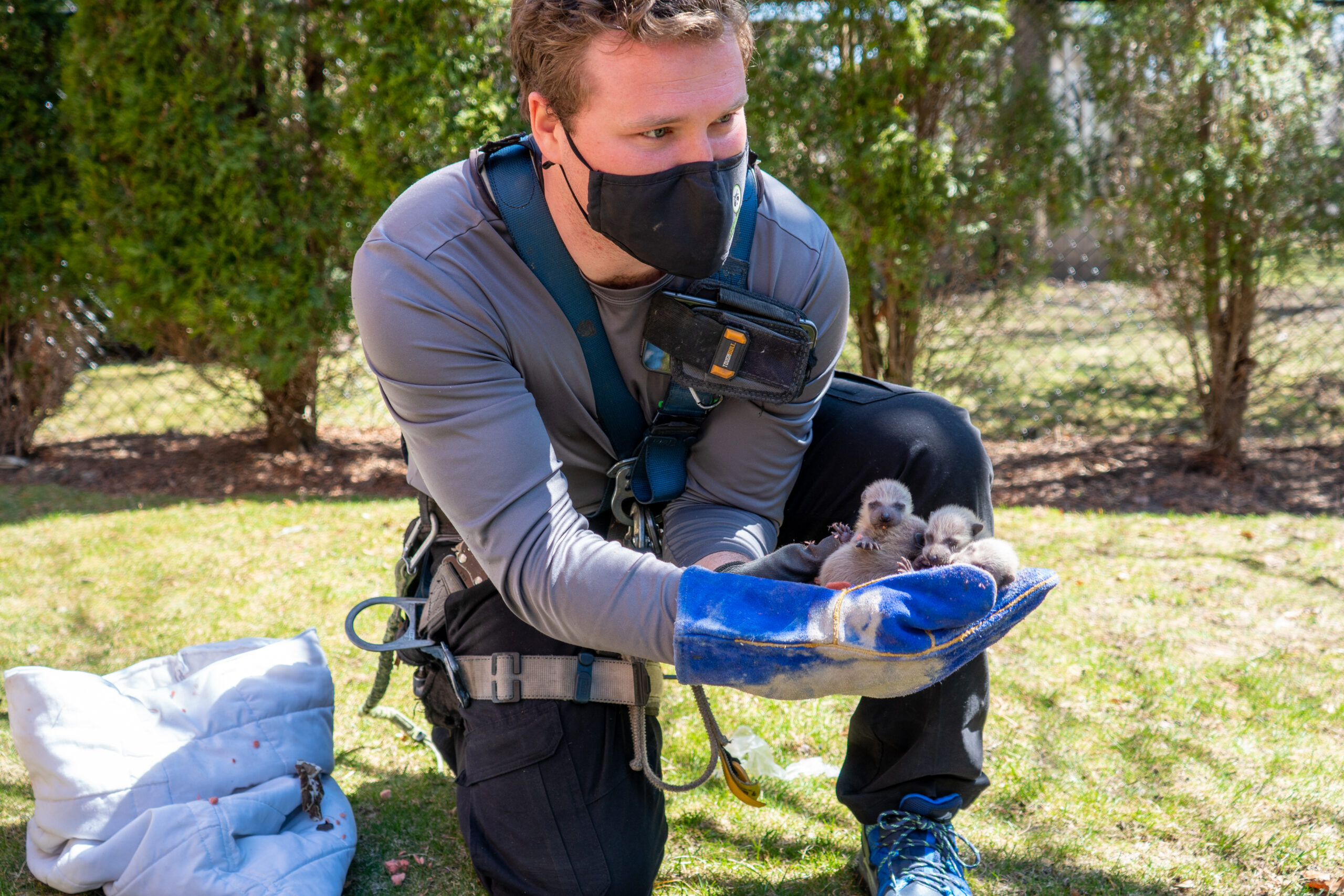Many wild animals in the Milwaukee area have adapted to living near humans, particularly clever mammals, such as raccoons. These intelligent and comical-looking creatures may approach your Milwaukee home in search of food and shelter to raise their babies in relative safety, but they can also cause serious damage with their feces. Here at Skedaddle Humane Wildlife Control, we can provide you with raccoon removal and some useful information about how raccoon feces can affect you and your family.
What Draws Raccoons To Your Property?
Raccoons are foraging omnivores that eat nuts, berries, insects, and even mice. They also take advantage of any food sources they find on your property, such as the contents of a trash can and leftover pet kibble. These mammals also have clever forepaws that can work and pry open loose roofing tiles and soffits, which allows them entry to your attic.
You can discourage raccoons from entering your yard by removing food and water sources. Use metal or thick plastic trash cans with snap-down lids, and avoid leaving pet food bowls out overnight. Raccoons are likely to move on if they cannot find the resources they need on your property.
What Is a Raccoon Latrine?
Once raccoons choose a home, they create a latrine that they visit to relieve themselves. They keep the nesting site clean and create a latrine somewhere nearby.
Once raccoons establish a latrine site, it becomes a mound of disease. Raccoon feces carries a variety of diseases, including:
- Giardia
- Leptospirosis
- Raccoon roundworm
Because cleaning a raccoon latrine can cause the spread of bacteria throughout your home unless properly contained during the process, calling in our experienced technicians for wildlife control in Milwaukee can prevent this potentially dangerous issue.
How Can Raccoon Feces Affect Your Health?
Trying to handle raccoon removal on your own can pose serious risks to your health. Giardia and raccoon roundworm can both cause serious digestive upset, and the bacteria that carry these diseases can become airborne when you attempt to clean up a raccoon nest or latrine on your own.
A raccoon latrine may also contain ticks and fleas, which may travel to other areas of your own on your clothing. Fleas can jump considerable distances and find new hosts, such as your dog or cat. Both fleas and ticks carry diseases as well, such as Lyme disease. Our wildlife removal technicians can remove these raccoon toilets in a way that keeps any bacteria well contained.
Is DIY Raccoon Removal Dangerous?
If you discover raccoons in your Milwaukee home, you may wonder if you can remove the animals yourself; however, this can put you in danger. Raccoon mothers will defend their kits by biting and scratching and could also transmit disease via these types of wounds. Trying to sweep up or vacuum away raccoon nesting can send bacteria into the air, where it may spread through your home via the ductwork.
How Do Skedaddle Technicians Remove Raccoons?
When you look up raccoon removal near me and find our services in Milwaukee, our wildlife removal technicians will come out to inspect your property to find raccoon entry points and the location of the latrine. They will then remove any live animals, including kits, before cleaning up the nesting site in a way that reduces the spread of animal bacteria. Our technicians can also seal any entrance points they find and offer you tips regarding how to discourage raccoons from returning to your property.
Contact Us Today for Raccoon Removal
When raccoons invite themselves into your Milwaukee home, keep yourself and your family safe by calling us here at Skedaddle Humane Wildlife Control. Contact us today to schedule services and for further information about how we can help you safeguard your home.




